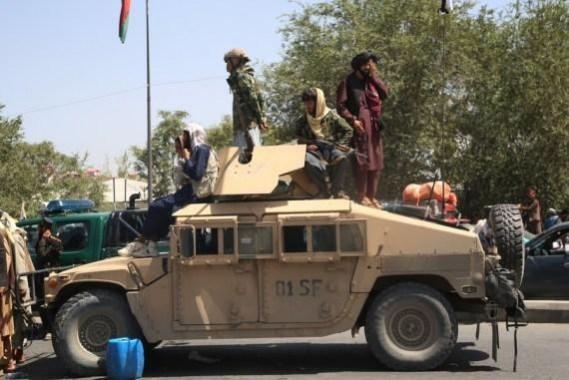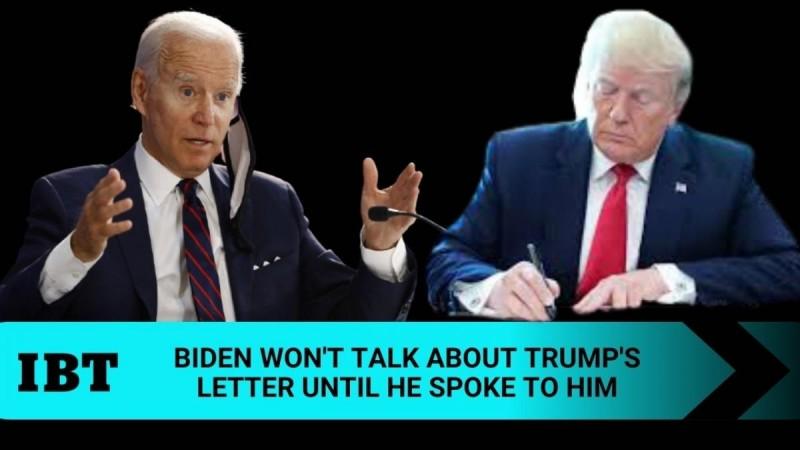The White House is finding itself in a new crisis after a botched withdrawal of its troops from Afghanistan, overwhelmed by withering criticism from home and abroad, though President Joe Biden sought to take cover under the pretext of inheriting the problem from his predecessor Donald Trump who resumed talks Taliban at Doha.
A viral video clip shows a crowd of Afghans running alongside a US military transport aircraft, with some clinging to the fuselage, as it gained speed on the tarmac at an airport in Kabul. Another segment shows individuals falling in mid-air after the plane took off.
The terrifying scenes occurred after the Taliban entered Kabul over the past weekend in a swift offensive that brought what many described as an embarrassing end to two decades of U.S. military presence in Afghanistan.

The Taliban, which ruled the landlocked country at the crossroads of Central and South Asia in the late 1990s, was toppled by US-led forces in 2001.
Saigon moment?
Pundits recently used the phrase "Saigon moment" to describe what was unfolding in Kabul, where photographers captured images of a Chinook helicopter flying near the U.S. embassy amid a hasty evacuation ahead of the Taliban's complete takeover of the city.
The photos were eerily similar to scenes from the fall of Saigon at the end of the Vietnam War, when the United States hurried to airlift the last of its personnel and some Vietnamese from the roof of its embassy in late April 1975, a moment widely believed to be a symbol of Washington's failings in the Southeast Asian country.
Change in mission goal
In a defensive position, senior US officials have sought to reject such a comparison and claimed that the country has achieved its mission in the Afghan war.
Speaking from the White House on Monday, US President Joe Biden alleged "our mission in Afghanistan was never supposed to have been nation-building," while acknowledging that the situation in the country "did unfold more quickly than we had anticipated."

The Donald Trump administration brokered a deal with the Taliban in 2020 that laid out plans for U.S. forces to fully withdraw from Afghanistan by May 1, 2021. Biden announced in April that he would follow through on the agreement and vowed that he would not pass the war onto another President.
Since invading Afghanistan in 2001 in response to the September 11 terrorist attacks that killed almost 3,000 people in the US, Washington has spent $2.26 trillion on the war, which includes operations in both Afghanistan and Pakistan, according to Brown University's Costs of War Project.
Figures from the project also showed that more than 2,400 US service members, some 3,800 American contractors, more than 1,100 other allied troops, and an estimated 66,000 Afghan national military and police were killed in the conflict, along with more than 47,000 civilians.
One of the greatest defeats in American history: Trump
Trump has recently directed a series of harshly-worded statements against Biden, saying that "there has never been a withdrawal operation that has been handled so disastrously" and that "it will go down as one of the greatest defeats in American history." Many Democrats were also critical of how the Biden administration had managed the US exit from Afghanistan.

As the drumbeat of criticism from across the political spectrum continued, Biden's national security adviser Jake Sullivan said on Tuesday that "there were chaotic scenes yesterday" but argued that "even well-drawn plans don't survive first contact with reality".
US allies too upset
Some allies are also lashing out at the United States over the Afghan debacle, as they have been left scrambling to get their nationals out of the country. The decision was "ultimately made by the Americans" and "domestic political reasons" were partly to blame, German Chancellor Angela Merkel reportedly said on Monday.
Peter Ricketts, Britain's former national security adviser, tweeted that the United States' "unilateralism over their withdrawal has done real damage to" the North Atlantic Treaty Organization (NATO) alliance.
Richard Haass, president of the US think-tank, Council on Foreign Relations, wrote on Twitter that he believes "the grim aftermath of America's strategic and moral failure will reinforce questions about US reliability among friends and foes far and wide".
(With inputs from IANS)
















